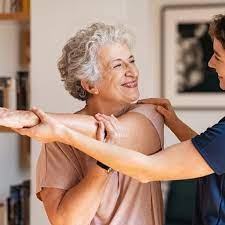Feeling part of something bigger than yourself is one of the most rewarding aspects of life. For many people with disability, NDIS-funded social groups offer more than a fun outing—they’re an essential way to build friendships, confidence and independence.
Whether it’s a group hiking trip, art workshop, or weekly catch-up at a community centre, social activities create powerful opportunities for personal growth. In this article, we explore how NDIS social groups support skill development, emotional wellbeing, and inclusion—and why they matter more than ever in 2025.
Why Social Skills Matter for Everyone
Social connection is a key pillar of mental and emotional health. For people living with disability, structured opportunities for connection are vital. These activities promote:
- Confidence in communicating
- Conflict resolution skills
- Emotional regulation in group settings
- A sense of belonging and purpose
NDIS social groups play a major role here. They give participants a safe, inclusive space to try new things, connect with others, and slowly step outside their comfort zones—all while building social and life skills that ripple into every aspect of their day-to-day life.
Examples of NDIS-Funded Social Group Activities
NDIS social groups are more than just passive hangouts. They’re structured around meaningful engagement and offer a wide range of activities designed to develop interpersonal and life skills.
Here are a few popular options:
Creative Arts Sessions
Art, drama, music and dance are powerful ways to express emotion, collaborate, and explore new interests in a group setting. Participants often walk away from these sessions with new friends and boosted confidence.
Outdoor Adventures
Nature walks, sports, or local excursions encourage teamwork, decision-making and physical wellbeing. These kinds of activities support both mental and physical health, while helping participants feel more connected to their community.
Game and Skills Nights
From board games to cooking sessions, these environments are rich with opportunities to build social awareness, practice turn-taking, and develop practical life skills in a fun, informal setting.
Community Events and Outings
Many group programs also include outings to markets, music events, or cultural activities—helping participants build confidence in navigating public spaces and engaging with others socially.
For a wider look at available ndis social groups, programs are often grouped by interest and ability, ensuring every participant has the chance to meaningfully engage.
The Role of Social Groups in Building Independence
One of the biggest wins of consistent social engagement is independence. When participants join a social group, they often begin with low confidence and a reluctance to speak or act on their own. Over time, that changes. Regular social exposure supports:
- Self-advocacy
- Decision-making
- Problem-solving
- Teamwork and trust-building
It’s not uncommon for participants to start organising their own transport, preparing for group sessions independently, or even mentoring newer group members. These seemingly small steps can be life-changing.
Benefits for Families and Support Networks
It’s not just the participants who benefit—families and support workers often report a positive flow-on effect when someone attends ndis social groups regularly.
Here’s what they often see:
- Improved mood and emotional regulation
- Reduced social anxiety
- More consistent routines and goals
- Strengthened communication at home
These groups can also give carers a regular window for respite, knowing their loved one is participating in something enjoyable and meaningful.
Choosing the Right Social Group for You
Every participant has different goals, preferences and comfort levels. That’s why variety and flexibility are essential. A high-quality program will:
- Provide a range of group sizes and settings
- Focus on individual support goals
- Have experienced, empathetic facilitators
- Encourage participant choice and input
NDIS funding can often be used for community access or group-based activities, so it’s worth checking your plan or asking your Support Coordinator for help aligning your goals with group options.
If you’re unsure where to start, many providers offer info sessions or trial periods to help participants and their families feel comfortable before committing.
To explore a current list of ndis social groups and what’s available near you, check if the programs suit your goals and preferences.
How Group Programs Are Evolving in 2025
The nature of social programs is changing. Post-pandemic, more focus is being placed on hybrid group formats, including small in-person gatherings, digital meetups, and interest-based workshops.
Organisations are also investing more into:
- Co-designed programs led by participants
- Peer mentoring opportunities
- Trauma-informed support practices
- Inclusion of First Nations and CALD communities
This progress ensures that group programs don’t just meet minimum support needs—but actively drive community connection and participant-led success.
As more providers adopt inclusive design and feedback loops, the quality of NDIS social groups continues to improve across the board.
External Perspective: Why Social Inclusion Matters Globally
The value of social participation in disability support isn’t unique to Australia. According to the World Health Organization, inclusive participation in community activities is one of the strongest predictors of long-term mental and emotional health for people with disability.
It’s not just about access—it’s about active inclusion, meaningful relationships, and the freedom to belong.
Final Thoughts
NDIS social groups aren’t just feel-good extras. They’re a core part of helping people thrive—socially, emotionally, and independently. From building lasting friendships to learning how to be part of a team, the benefits go far beyond a single session.
If you or someone you care for could benefit from more community engagement, now is the time to explore your options. Find a group that feels right. Then show up, grow together, and celebrate the small wins.

